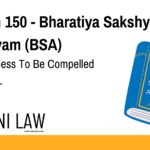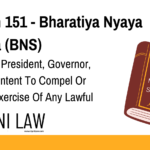This article, drafted by Akhila Bolla and Khushi Khandelwal, provides an in-depth analysis of Sections 271 and 272 of the Companies Act, 2013, which govern the winding up of companies by the Tribunal. It covers the legal provisions, process, advantages, and real-world cases, emphasizing the role of the National Company Law Tribunal (NCLT) in ensuring transparency and protecting stakeholders’ interests.
Introduction
Winding up a company is a crucial legal process that leads to the closure of a business entity, either voluntarily or through legal enforcement. The Companies Act, 2013, under Sections 271 and 272, governs winding up by the Tribunal, typically due to financial insolvency, fraudulent activities, or public interest concerns.
The National Company Law Tribunal (NCLT) oversees this process to ensure transparency and fairness. Unlike voluntary liquidation, Tribunal-ordered winding up is a legal enforcement mechanism that protects stakeholders such as creditors and employees while preventing fraudulent companies from continuing operations.
LEGAL REQUIREMENTS FOR WINDING UP UNDER SECTIONS 271 & 272
Section 271: Grounds for Winding Up
A company may be wound up by the Tribunal under the following circumstances:
- Voluntary Resolution – When the company passes a special resolution to be wound up.
- Public Interest Concerns – If the company engages in activities against national security, sovereignty, or integrity.
- Fraudulent & Illegal Practices – If a company operates fraudulently or unlawfully.
- Financial Non-Compliance – If the company fails to file financial statements or annual returns for five consecutive years.
- Equitable Necessity – When the Tribunal determines that winding up is necessary for justice and stakeholder protection.
Section 272: Who Can File a Winding Up Petition?
A winding-up petition can be filed by:
- The Company – When it acknowledges its inability to continue operations.
- Creditors – If the company defaults on debt obligations.
- Registrar of Companies (ROC) – In cases of non-compliance or financial irregularities.
- Central or State Government – If the company operates against public welfare or national security.
- Other Authorized Persons – If the government grants specific authority to file a petition.
PROCESS OF WINDING UP BY THE TRIBUNAL
- Filing of Petition – An eligible entity submits a petition under Section 272.
- Hearing & Investigation – The NCLT examines the company’s financial and operational status.
- Appointment of Liquidator – If approved, an official liquidator is appointed.
- Asset Liquidation – The liquidator sells assets and settles debts.
- Final Dissolution – The company is officially dissolved, and its name is removed from the register.
ADVANTAGES OF WINDING UP BY THE TRIBUNAL
- Legal Compliance – Ensures strict adherence to corporate laws, reducing fraud.
- Fair Asset Distribution – Provides an equitable repayment process for creditors and stakeholders.
- Prevention of Unethical Business Practices – Shuts down non-compliant and fraudulent companies.
- Structured Liquidation Process – Enables an organized and legally compliant closure.
- Stakeholder Protection – Safeguards creditors, employees, and investors.
CASE STUDIES & REAL-WORLD EXAMPLES
Several Indian companies have been wound up by the Tribunal due to financial irregularities and mismanagement:
- Dewan Housing Finance Corporation Ltd. (DHFL) – Liquidated due to financial mismanagement and insolvency.
- Kingfisher Airlines – Forced into liquidation after failing to repay creditors.
- Pearl Agro Corporation – Shut down due to fraudulent investment schemes and non-compliance.
These cases underscore the importance of corporate governance and financial compliance in avoiding Tribunal-ordered winding up.
CONCLUSION
Winding up by the Tribunal under Sections 271 and 272 plays a critical role in maintaining corporate discipline and ensuring legal compliance. While the process promotes justice and prevents fraud, it can be time-consuming and costly, impacting stakeholders.
Companies must adhere to financial and legal regulations to avoid winding up. Strengthening corporate governance and regulatory oversight can help sustain businesses and protect stakeholders from financial distress.











